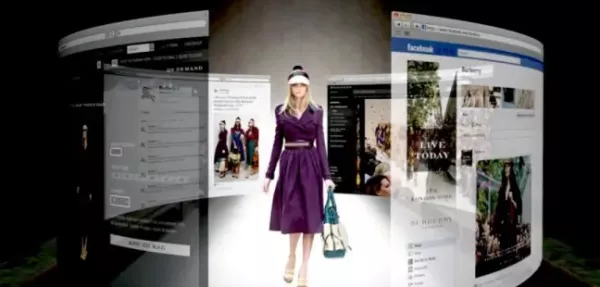How to Manage Inventory Effectively in Retail Stores
- Pearl Academy Editorial Team
- Published 16-Jan-2024

Effective inventory management in retail stores is key to success, especially in the fast-paced world of fashion and lifestyle. With proper retail inventory management, retailers can reduce costs, increase profits, and boost customer satisfaction. Programs like a BBA or MBA in Fashion and Lifestyle Business Management provide a solid foundation in inventory management techniques that are crucial for the retail management process.
This guide will explore how to handle store inventory, what the merchandise management process involves, and how to build a successful career in retail.
Become future-ready with our Business Programs
Know MoreWhat is Inventory Management in Retailing?
In simple terms, inventory management is about maintaining the right balance of stock to meet customer demand while minimizing excess. Effective store inventory management involves tracking products from suppliers to retail shelves, ensuring items are available when needed. This process is essential in retail management to avoid issues like stockouts or overstocking, which can significantly impact sales and profitability.
Inventory store management systems play a crucial role here. By implementing systems that track and monitor inventory in real-time, retailers can streamline operations and make informed decisions. With courses in Fashion and Lifestyle Business Management, students gain insights into using such systems effectively within the retail chart project framework.
Overcoming Challenges in Retail Inventory Management
The retail management process in fashion and lifestyle presents unique challenges, such as fast fashion, storage issues, and seasonal demand fluctuations. Fashion retail is dynamic, with trends shifting quickly. Effective merchandise management ensures that retailers can adapt to these changes without overstocking outdated products. Space can be limited in retail stores, making store inventory management crucial for maximizing available room.
Seasonal demand fluctuations require precise inventory management to avoid excess or insufficient stock levels. Learning about these challenges and strategies for overcoming them is part of the comprehensive training offered in BBA and MBA programs focused on inventory management in retail stores.
Key Techniques in Inventory Management in Retail
To stay ahead in the competitive world of retail, retailers employ various inventory store management techniques, such as:
- ABC Analysis: This technique categorizes stock based on value, allowing retailers to prioritize high-value items within the merchandise management process.
- Just-in-Time (JIT): JIT aligns inventory levels with actual demand, reducing storage costs and minimizing the risk of unsold stock.
- Demand Forecasting: Accurate forecasting helps ensure that the right products are available in the right quantities, a critical element in the retail management process.
Programs in Fashion and Lifestyle Business Management cover these techniques, preparing students to handle real-world inventory management in retail scenarios.
Role of Technology in Store Inventory Management Systems
Modern technology has revolutionized inventory store management, offering tools that streamline the entire retail management process. Inventory Management Software, RFID and Barcode Scanning, and Data Analytics are some key technologies used in store inventory management systems. Together they help forecast demand, streamline reordering, improve accuracy, predict trends, and adjust inventory accordingly.
By mastering these tools, students in Fashion and Lifestyle Business Management can optimize inventory management in retail stores and drive success in their future careers.
Best Practices in Inventory Management in Retail Stores
Effective retail inventory management relies on several key practices that help maintain accuracy, prevent losses, and streamline operations. Regular audits are essential, as they ensure that store inventory matches records, allowing for the identification of discrepancies and the prevention of potential issues. Building strong vendor relationships is equally vital, as it enables timely replenishment of stock, ensuring that the store remains well-stocked and responsive to customer demands.
Additionally, investing in employee training can significantly enhance inventory processes; knowledgeable staff can manage inventory more efficiently, contributing to a smoother overall store management system. By incorporating these best practices, you can cultivate a successful career in retail management, ensuring that your store runs seamlessly while meeting and exceeding customer expectations.
Career Opportunities and Education in Retail Inventory Management
The retail and fashion industries are evolving, and merchandising plays a critical role in defining the future of shopping. By pursuing a BBA or an MBA in Fashion and Lifestyle Business Management, you’ll learn essential skills in consumer behavior, retail inventory strategies, and brand management—all key to becoming a successful store inventory management system.
A solid understanding of inventory management in retail opens doors to various roles, such as:
- Retail Manager: Overseeing operations and store inventory management to ensure optimal stock levels.
- Merchandise Planner: Working within the merchandise management process to forecast demand and align inventory with consumer needs.
- Supply Chain Analyst: Using data to enhance the efficiency of the retail chart project and other inventory systems.
With the rise of experiential shopping, professionals with expertise in visual merchandising are in high demand. This degree provides a comprehensive education in the business side of fashion, enabling you to create compelling visual stories that drive sales.
Why Pursue a Degree in Fashion and Lifestyle Business Management?
A BBA or an MBA in Fashion and Lifestyle Business Management offers a unique blend of creative and business skills. From understanding consumer psychology to learning the latest trends in retail, this program equips you with the knowledge and hands-on experience needed to excel in today’s fast-paced fashion industry.
Here’s why you should consider this degree:
| Comprehensive Curriculum: Learn everything from fashion marketing to retail inventory management, with a focus on store management. | Hands-On Experience: Gain practical experience through internships, workshops, and real-world projects that prepare you for a career in fashion retail. | Career Opportunities: Graduates can pursue roles such as Visual Merchandiser, Fashion Buyer, Retail Manager, and Brand Strategist. |
Programs like BBA and MBA in Fashion and Lifestyle Business Management provide the necessary skills to excel in these roles and more.

Student Guidance Center: Our Counselors are Just a Click Away.
Conclusion: Take Charge of Your Career with Inventory Management in Retail
Effective inventory management is essential for success in fashion retail. Pursuing a BBA or MBA in Fashion and Lifestyle Business Management can equip you with the knowledge and tools needed for a thriving career in retail inventory management. Embrace the world of store inventory management systems and become a leader in the retail management process by choosing the right educational path. Start your journey with Pearl Academy today and make a significant impact in the world of fashion retail! Apply Now.
Also Read:
Pearl Academy Editorial Team
Tags
- #Business
Pearl Admission Enquiry
Subscribe to Pearl Blogs
By clicking the "Subscribe" button, I agree and accept the privacy policyyy of PEARL.
Please enter your email




























